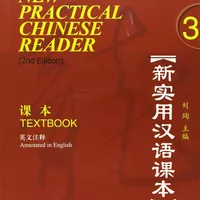27 - 1
27 - 1
Lesson 27 - Conversation 1
27 - 1
27 - 1
27 - 1
27 - 1
27 - 1
27 - 1
Lekcja 27 - Rozmowa 1
27 - 1
27 - 1
27 - 1
27 - 1
A: 你 觉得 这儿 的 茶馆 儿 怎么样 ?
||think|here||teahouse|(r)|How is it
あの|||ここ||茶館||
|||||chá||
A: What do you think of the teahouse here?
A: ¿Qué piensas de la casa de té aquí?
R: Cosa ne pensa di questa casa da tè?
A:ここのティーハウスについてどう思いますか?
B: 我 觉得 不错 。
|||nicht schlecht
||think|not bad
B(1)|||
B: I think it's good.
B:私は悪くないと思います。
B: Czuję się dobrze.
几个 朋友 在 一起 可 喝茶 、 聊聊天 , 有时候 还 可以 听听 相声 、 看看 京剧 , 很 有意思 。
quelques||||peuvent|||||||spectacle comique||Opéra de Pékin||
a few|||together|can|drinking tea|chat|sometimes|also|can|listen|cross talk|watch 京 opera|Peking Opera||interesting
vários||||||conversar|||||stand-up comedy||ópera de Pequim||
|||||Tee trinken|||auch|||Schauspiel||Pekingoper||
|||||||||||skämtkonst||Pekingopera||
|||||||時々||できる||落語||京劇||
A few friends can drink tea, chat, and sometimes listen to cross talks and watch Peking opera. It’s very interesting.
Algunos amigos pueden tomar té y conversar entre ellos, y a veces pueden escuchar conversaciones cruzadas y ver la Ópera de Pekín, lo cual es muy interesante.
È molto interessante per alcuni amici prendere il tè e chiacchierare insieme, e a volte possono anche ascoltare commedie e guardare l'Opera di Pechino.
友達と一緒にお茶を飲んだり、おしゃべりをしたりするのは、時々落語を聞いたり、京劇を見たりすることができて、とても面白いです。
Kilku przyjaciół może napić się herbaty i pogawędzić ze sobą, a czasami mogą posłuchać rozmowy krzyżowej i obejrzeć Operę Pekińską, co jest bardzo interesujące.
Một vài người bạn có thể uống trà và trò chuyện cùng nhau, đôi khi họ cũng có thể nghe nói chuyện chéo và xem Kinh kịch, rất thú vị.
C: 可是 我 发现 这些 场所 人们 说话 的 声音 太 大 , 不 安静 。
|||découvert||lieux||||||||
But|but||found|these|places|people|||voices|||not|quiet
|||descobri||lugares||||som||||silencioso
|||entdecke||Orte||||||||ruhig
|||||platser||||||||
|||||場所||||||||
C: But I found that people speak too loudly and not quietly in these places.
C: Pero descubrí que la gente habla demasiado alto en estos lugares, no en silencio.
C:でも、私はこれらの場所で人々の話し声が大きすぎて、お静かではないことに気づきました。
C: Ale odkryłem, że ludzie rozmawiają zbyt głośno w tych miejscach, a nie cicho.
A: 茶馆 儿 就是 热闹 的 地方 。
||||animé||
|teahouse|place|is|lively||place
||子供||||
|casa de chá|||animado||lugar
A: The teahouse is just a lively place.
R: Las casas de té son lugares animados.
R: Una casa da tè è un luogo vivace.
A:茶館は賑やかな場所です。
人们 说话 的 声音 大 , 大家 也 都 习惯 了 。
||||||||habitués|
|||loud voices||||all|are used to|
||||||||gewöhnt|
||||alto||||estão acostumados|
People speak loudly, and everyone is used to it.
La gente habla en voz alta, y todo el mundo está acostumbrado.
人々の話し声は大きく、皆もそれに慣れています。
特别 是 年轻人 聊天儿 聊得 高兴 的 时候 , 声音 就 越来越 大 了 。
||||parlent||||voix||||
besonders||||||||||||
especially||young people|chat|talk|happy||when|voice||louder and louder||
speciellt||ungdomar||||||||||
especialmente|||||feliz|||||||
Especially when young people are chatting happily, their voices become louder and louder.
Especialmente cuando los jóvenes conversan alegremente, sus voces se vuelven cada vez más fuertes.
Soprattutto quando i giovani chiacchierano allegramente, le loro voci diventano sempre più alte.
特に若者たちが楽しく会話をしているとき、声がどんどん大きくなります。
C: 对 我 来说 公共场所 应该 安静 点儿 , 说话 的 声音 要 小 一点儿 。
C(1)||||lieux publics|||un peu||||||
|to||for me|public places|should be|quiet|a bit||that|volume||quieter|a bit
|||für mich|öffentlicher Ort|||||||||
||||lugar público||silencioso|||||||
C: For me, public places should be quieter, and the voice should be lower.
C: Para mí, los lugares públicos deberían ser más silenciosos y las conversaciones deberían ser más tranquilas.
C:私にとって公共の場所はもっと静かであるべきで、話す声はもう少し小さくするべきです。
这样 闹 的 地方 我 觉得 不 舒服 。
|bruyant||||||à l'aise
this|noisy||place||feel||comfortable
|barulhento||||||confortável
|laut||||||
|störande||||||bekväm
|騒がしい||||||
I feel uncomfortable in such a noisy place.
No me siento cómodo en un lugar tan ruidoso.
こんなに騒がしい場所は私は居心地が悪いと感じます。
A: 你 的 看法 很 对 , 我 也 是 这样 想 的 。
|||||correct||||||
|||Meinung||||||||
|you||opinion|very||I|too||this|think|
|||opinión||||||||
|||opinião||||||||
A: Your opinion is quite right, I think so too.
R: Tienes razón, y yo también lo creo.
A:あなたの意見はとても正しいです、私もそう思います。
听说 一些 新 茶馆 儿 , 比如 老舍 茶馆 儿 , 就 很 安静 。
|||||par exemple|Lao She|||||
I heard|some|new|teahouse||for example|Laoshe|teahouse||||quiet
||||||Lao She|||||quieto
|||Teegeschäft||zum Beispiel|Laoshe|||||ruhig
||||||Lao She|||||
||||||老舌|||||
||||||Lao She|||||
I heard that some new teahouses, such as Laoshe Teahouse, are very quiet.
Escuché que algunas casas de té nuevas, como Laoshe Teahouse, son muy tranquilas.
Lao She TeaHouseのようないくつかの新しいティーハウスはとても静かだと聞きました。

